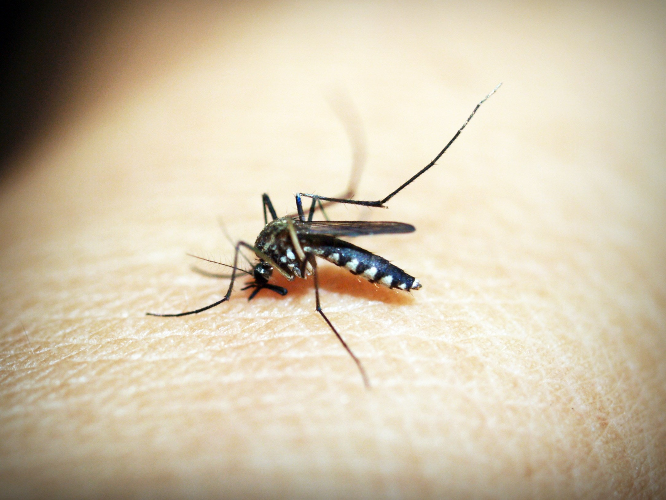Five Effective Ways to Protect Yourself Against Dengue

You’ve probably heard the joke about Malaysia’s four seasons: we experience the dry season, the durian season, the haze season and the Dengue season. All jokes aside though, while Dengue is at its peak during our country’s monsoon period, which typically falls between October to February, transmission can and does occur all year round.
Symptoms of Dengue Fever (Mayo Clinic)
Many people do not show signs or symptoms of Dengue infection. When symptoms do show up, they usually start 4 to 10 days after being bitten by an infected mosquito and may be mistaken for other illnesses, such as the flu. Symptoms of dengue are flu-like and include high fever, pain behind the eyes, joint, muscle, and bone pain, severe headaches, fatigue, and skin rash.
Unfortunately, no specific treatment for dengue fever exists. However, you should drink plenty of fluids while recovering from Dengue fever. Muscle pain and fever can be reduced by taking over-the-counter (OTC) drug acetaminophen (Tylenol, others). You should avoid other OTC pain relievers, including aspirin, ibuprofen (Advil, Motrin IB, others), and naproxen sodium (Aleve) if you have Dengue fever. The risk of Dengue fever bleeding complications can be increased due to these pain relievers. Several home remedies such as crab soup and young papaya leaf juice may help you in your recovery.
1. Prevent mosquito habitats
Aedes mosquitoes lay their eggs in stagnant water and it takes only seven to ten days for the eggs to hatch and turn into fully formed mosquitoes. Therefore, the most effective way to avoid getting Dengue, especially at home, is by ensuring that there are no mosquito habitats.
You can do this by:
-
Closing your water collection points with a cover or fine mesh to ensure mosquitoes cannot get to the water to lay their eggs.
-
Regularly cleaning anything that is exposed to and can accumulate moisture easily, such as plant pots, flower vases, discarded plastic containers, pet water bowls, gutters, and drainage areas – even upturned bottle caps can be a breeding ground for Aedes mosquitoes.
-
Using Abate powder in water containers or other contraptions that accumulate water. The Ministry of Health Malaysia and the World Health Organization have also recommended using consumer-grade Abate (1SG) at the recommended doses to treat small drinking water containers that are potentially exposed to mosquitoes.
-
Storing or discarding anything that can accumulate water.
2. Keep your doors and windows closed as much as possible, or invest in insect screens
While constantly keeping your doors and windows closed is a good way to prevent mosquitoes and other insects from getting in, this is not always the most practical idea.
If you like airing out your house regularly, do consider investing in good insect screens. It will let air flow through your space without letting mosquitoes in. However, this is only effective if all possible entry points are screened, including the gaps under your doors and air vents. Insect screens must also be checked regularly to ensure tears are fixed as they are big enough for mosquitoes and other insects to get through.
While you can keep an eye out for mosquitoes when you’re awake, you’re not likely to realise it if one bites you in your sleep. If your doors and windows are not protected by insect screens, consider installing a mosquito net to give you that extra layer of protection.
3. Protect your skin from mosquito bites
If you’re living in a Dengue hotspot, use electric mosquito repellants to protect your skin from mosquito bites. If you’re heading out, protect any exposed skin by using insect repellant sprays. Make sure they contain sufficient properties to ward off mosquitoes, and that the ingredients are safe to use on the skin.
Optionally, wear long sleeves and long pants, preferably in neutral colours such as beige, white, and light grey. For extra protection, tuck the bottom of your pants into your socks and wear a collared top. And, don’t forget to spray insect repellant over your clothes as well.
4. Avoid visiting areas prone to mosquitoes
Mosquitoes love tropical and humid climates, a description that applies to almost our entire country. Aedes mosquitoes are especially prevalent in urban and semi-urban areas.
In built up areas, construction sites are a common breeding ground for mosquitoes, but outbreaks can occur anywhere.
Out of town, mosquitoes can also breed where stagnant water is present, such as ponds, wetlands, marshes and swamps. Avoid going into these areas or, protect yourself accordingly.
5. Be vigilant
Be extra vigilant if a household member contracts Dengue. A mosquito that bites that specific family member before biting others can easily spread the disease – it is not unusual for several members in one household to get Dengue at the same time.
Clean all areas that can be potential breeding grounds, spray insect repellant regularly, request your local council, or hire a private contractor to ‘fog’ your house and surrounding areas with insecticide. Likewise, if your residential area is being fogged, it may indicate that Dengue cases have been reported in your area – be vigilant!
Dengue doesn’t discriminate, and while many patients recover in full, it is not a particularly pleasant ordeal to go through. Furthermore, did you know that there are four subtypes of Dengue in Malaysia? Known as DEN 1, DEN 2, DEN 3 and DEN 4, getting infected by one subtype of Dengue means you will be immune to that specific subtype and cannot be reinfected. However, you will not be immune to the other three subtypes. It is, therefore, absolutely possible for you to get Dengue more than once in your lifetime.
Without an actual cure for Dengue, the best protection is to take the proactive steps above and avoid getting infected altogether. By protecting ourselves from Dengue, we are protecting others from Dengue as well, and the best way to do this is to work as a community to ensure everyone stays safe.
